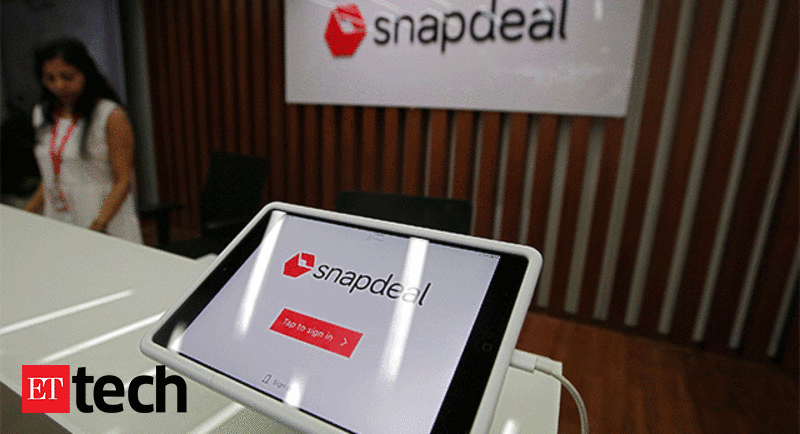
Payment firms seek reimbursement for MDR loss
What's the news?
The Payments Council of India is seeking compensation from the government for losses incurred while processing online payments, in its attempt to escalate the debate on “zero” charges on digital payments. It has mooted the establishment of a designated fund that will reimburse the losses that could arise out of the government’s mandate to waive the merchant discount rate (MDR), a charge borne by merchants on digital payments, according to three people in the know of the matter.
Why does this matter?
MDR is the price merchants pay to banks and service providers for the digital payments and settlements system and the industry body said that a margin of minimum 25 basis points is crucial for the survival of payment companies.
Payment service providers have deployed terminals across railways, toll plazas, educational institutions and government departments aiming for a revenue boost from increased adoption of digital payments. Waiving the MDR would deprive these companies of a revenue stream required to maintain the technology platforms and provide high-level security to prevent frauds. This could also disincentivise PSPs from acquiring new merchants beyond the main cities. Read more.
Rivigo layoff
What's the news?
Surface transport company Rivigo has laid off 70-100 employees over the last few months, mainly in its freight marketplace team, multiple people aware of the matter told ET. It also withdrew around 50 offers from 10 premier campuses.
Why is this happening?
This development comes at a time when Rivigo has been under pressure from investors to cut costs, move away from an asset-heavy business, and improve its unit economics across all business verticals.
The company has not been able to charge a premium for its fast relay service, and its asset-light freight business also had gaps, which led to misuse by some truckers, three investors who evaluated the company and two former top executives told ET. They indicated that the company has focused on significantly restructuring its business, and evolving a viable model, over the last one year.
Co-founder Gazal Kalra, however, said the company had significantly improved margins in the past year across its three lines of business - Full Truck Load, Part Truck Load, and Freight Brokerage. Read more.

Oyo's new Cayman base
What's the news?
Oyo founder has set up a Cayman Islands-registered entity, RA Hospitality, which will look to make fresh investments in the SoftBank-backed hospitality chain, as well as undertake buybacks from existing investors.
What's the significance?
In a sense, this move is similar to what Ola founders Bhavish Aggarwal and Ankit Bhati did last year to increase their stake in Ola. Ritesh Agarwal is preparing to undertake a potential $1.5 billion share buyback from early investors Sequoia Capital and Lightspeed Venture Partners that may see his stake in Oyo jump from to around 30% from the current 10%. This may go up to as much 32%-33%, including the stakes held by the management and employees, ET had reported earlier. Read more.

Blockchain makes its way to larger projects
What's the news?
Clients of IBM, TCS, and Wipro are starting to use blockchain solutions of these big technology firms in live projects, in a shift away from using them for proof of concept or pilot projects.
Why does it matter?
The shift to live blockchain projects comes after clients realized blockchain technology’s capability. These tech firms have now developed blockchain services for the banking, financial services, and insurance (BFSI), telecom and energy verticals, in a bid to capture a share of increased spending in blockchain technology. Spending on blockchain solutions has been forecast at $2.9 billion across the world in 2019. In the Asia-Pacific excluding Japan, it is pegged at $523.8 million, according to industry tracker International Data Corporation. Read more.

Snapdeal trims FY19 losses
What's the news?
Online marketplace Snapdeal’s revenue jumped 73% and losses narrowed significantly in the previous fiscal year, as the Gurugram-based company’s efforts to cut costs, shed assets and pivot to a pure marketplace model begins to pay off.
Snapdeal parent Jasper Infotech reported consolidated revenue of Rs 925.3 crore for FY19 compared to Rs 535.9 crore in the year-ago period. Losses narrowed by about 70% to Rs 186 crore for the 12-month period ended March 31, from a loss of Rs 611 crore in the previous fiscal year.
What has happened so far?
This is the second year in a row that Snapdeal — which at its peak was valued at $6.5 billion — has improved its bottomline, after embarking on a significant restructuring process following its failed merger with larger rival Flipkart in mid-2017.
Over the last 24 months, Snapdeal has sold most of its assets, except its core marketplace business. These included its payments arm FreeCharge to private sector lender Axis Bank, and its logistics venture Vulcan, as it looked to shore up a sagging balance sheet.
The company also pivoted to a pure marketplace resembling Alibaba group’s Taobao, which saw it focus largely on unbranded goods with high margins and on categories that were not dependent on discounts. Read more.